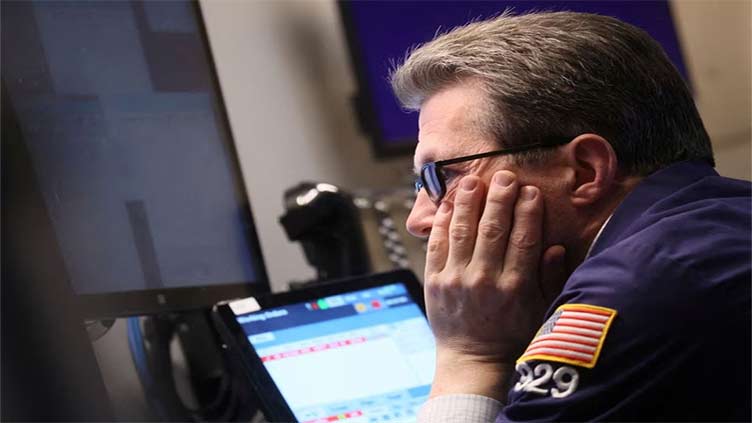Wall St Week Ahead Recession worries simmer beneath US stock market rally

Business
The S&P 500 is up 8.6% for the year after gaining 1.5% in April
NEW YORK (Reuters) – Economically sensitive areas of the U.S. stock market are flashing warnings over growth, even as major equity indexes edge higher.
The S&P 500 is up 8.6% for the year after gaining 1.5% in April, thanks to roaring year-to-date rallies in shares of Microsoft, Amazon and Google-parent Alphabet and other growth and technology stocks that command heavy weightings in broader indexes.
Beneath the surface, however, areas of the market tied to economic sentiment such as transports, semiconductors and small-cap stocks dropped in April, while so-called defensive sectors are outperforming.
Investors cited growing caution among market participants faced with a thicket of concerns, from fears of a possible US default this summer to worries that the Federal Reserve’s aggressive monetary tightening could bring on a recession.
“People are starting to more defensively position themselves,” said Aaron Dunn, co-head of the value equity team at Eaton Vance. “The overall signal to me is there is still a lot of fear about recession and oncoming weakness in the back half of the year.”
Areas of the market showing cracks include the Russell 2000, an index populated by smaller, domestically focused companies, which was down 1.9% for the month. The Dow Jones Transportation Average, another bellwether of economic health, fell 2.9%.
A 7.3% drop in the Philadelphia SE Semiconductor index was a worrying sign, as chips are ubiquitous in a wide range of products. The index is still up 18% for the year.
Regional banks are also wobbling, with the KBW Regional Banking index down 3.5% in April following a rout this week in shares of First Republic Bank. At the same time, consumer staples and healthcare, sectors favored by investors during uncertain times, have rallied in the past month.
Investors will focus on next week's Fed meeting, with the central bank expected to announce another 25 basis point rate hike on Wednesday. A bevy of earnings are also on deck, including results from Apple on Thursday.
Though the S&P 500 has shown resilience, just seven stocks – Apple, Microsoft, Alphabet, Amazon, Tesla Meta Platforms and Nvidia – were responsible for more than 88% of its year-to-date gain as of Thursday, according to Mike O'Rourke, chief market strategist at Jones Trading.
“It makes me nervous to be honest,” said James Ragan, director of wealth management research at D.A. Davidson. “It just seems like the market gains are being concentrated in fewer and fewer stocks and that is probably unsustainable for too long.”
Ragan is recommending clients overweight defensive sectors such as healthcare, staples and utilities.
While results from megacaps and strong economic reports buoyed optimism among some on Wall Street, others focused on downbeat news from companies in economically sensitive areas.
Shares of United Parcel Service tumbled 10% on Tuesday after the world's largest parcel delivery firm pegged annual revenue at the lower end of its forecast and warned of persistent pressure on volumes. The next day, shares of Old Dominion Freight Line also dropped 10% after the trucking firm missed quarterly estimates for profit and revenue.
"They are talking about demand being down and they are ridiculously important shipping companies,” said Matt Maley, chief market strategist at Miller Tabak.
Both stocks are part of the closely watched Dow Jones Transport Average, which was down 2.7% on the week and off 10% from its high for the year reached in February.
Maley is recommending clients hold higher-than-typical cash levels because of concerns about a recession and because safer assets now have higher yields, while favoring energy and defense stocks.
Of course, not all signs have pointed to economic weakness in recent weeks.
Overall, earnings have come in better than feared for the first quarter. With just over half of the S&P 500 having reported, earnings are on pace to have declined 1.9% for the first quarter from the year earlier period, according to Refinitiv. That is a smaller decline than the 5.1% drop expected at the start of April.
Meanwhile, data on Thursday showed an acceleration in consumer spending in the first quarter as US gross domestic product increased at a 1.1% annualized rate.
"It's hard to have a recession when consumers' incomes are rising, and they are spending more on both goods and services," Yardeni Research said in a note on Friday.

